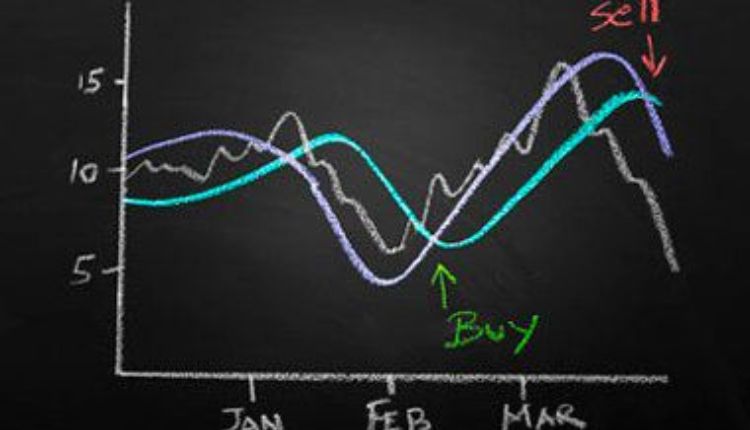Navigating The Economic Calendar: A Guide To Seizing Opportunities
Introduction
The economic calendar serves as a crucial tool for investors, traders, and economists alike, providing valuable insights into upcoming economic events and data releases. It allows individuals to stay informed about key indicators, central bank decisions, and market-moving news that can significantly impact financial markets. In this comprehensive guide, we will delve into the importance of the economic calendar, explore how it can be utilized effectively, and discuss strategies for maximizing opportunities within the dynamic realm of finance.
Importance Of The Economic Calendar
The economic calendar acts as a roadmap for economic events, offering investors and traders a heads-up on critical data releases and events that can influence market sentiment. Understanding and effectively utilizing the economic calendar can give individuals a competitive edge in making informed decisions and mitigating risks. Here are a few reasons why the economic calendar is of paramount importance:
- Timely Information: The economic calendar provides real-time information about economic indicators, including GDP growth, inflation rates, employment data, and central bank decisions. Having access to this data enables investors to anticipate market movements and adjust their positions accordingly.
- Market Volatility: Economic events and data releases often lead to increased market volatility. By staying abreast of upcoming events through the economic calendar, traders can brace themselves for potential price fluctuations and adjust their trading strategies accordingly.
- Trading Opportunities: Economic indicators can present trading opportunities for both short-term and long-term investors. Positive economic data may lead to bullish market sentiment, while negative data can trigger a bearish outlook. The economic calendar helps traders identify these opportunities and make informed decisions.
- Risk Management: The economic calendar helps traders manage risk by providing insights into potential market-moving events. By avoiding or adjusting positions during high-impact events, traders can mitigate the risk of adverse price movements or unexpected volatility.
Utilizing The Economic Calendar
Effectively utilizing the economic calendar requires a strategic approach. Here are some key considerations for making the most of this tool:
- Identify Key Events: Scan the economic calendar to identify events that are likely to have a significant impact on the markets. Look for high-impact indicators, such as interest rate decisions, employment reports, and GDP releases, as they tend to generate substantial market reactions.
- Understand Market Expectations: Alongside each event, the economic calendar often provides market consensus or expectations. Analyze these forecasts to gauge market sentiment and potential market reactions. Deviations from consensus can offer trading opportunities if the actual data differs significantly from expectations.
- Plan Ahead: Prepare a trading or investment strategy based on the events listed in the economic calendar. Consider the potential impact of each event and develop a plan for different scenarios. This will help you make well-informed decisions and respond promptly when the data is released.
- Consider Multiple Indicators: Economic events are interconnected, and their impact on financial markets can be amplified or diminished by other factors. Look for correlations and consider multiple indicators to gain a broader perspective and make more accurate predictions.
- Monitor Market Reactions: After an economic event, monitor the market reactions and price movements to assess the accuracy of your predictions. This feedback loop will help you refine your trading strategies and improve decision-making in the future.
Conclusion
The economic calendar serves as an indispensable tool for traders, investors, and economists, providing vital information about upcoming economic events and data releases. By effectively utilizing the economic calendar, individuals can anticipate market movements, identify trading opportunities, and manage risks. However, it is essential to combine this tool with fundamental and technical analysis to make informed decisions. With careful planning, attention to market sentiment, and continuous evaluation of results, the economic calendar can become an invaluable asset in navigating the dynamic world of finance.
FAQs:
- How frequently should I consult the economic calendar? It is advisable to review the economic calendar regularly, preferably on a daily basis. Economic events and data releases can significantly impact financial markets, and staying informed in real-time can help you seize potential opportunities and mitigate risks effectively.
- Can the economic calendar predict market movements with certainty? While the economic calendar provides valuable insights, it cannot predict market movements with absolute certainty. Various factors influence market reactions, including the deviation of actual data from market expectations, geopolitical events, and overall market sentiment. The economic calendar serves as a guide, but it is important to complement it with thorough analysis and risk management techniques to make informed trading decisions.
In summary, the economic calendar is a powerful tool that can help investors and traders stay informed about upcoming economic events and data releases. By understanding its significance, utilizing it effectively, and combining it with comprehensive analysis, individuals can enhance their decision-making capabilities, identify trading opportunities, and manage risks in the ever-evolving world of finance.



